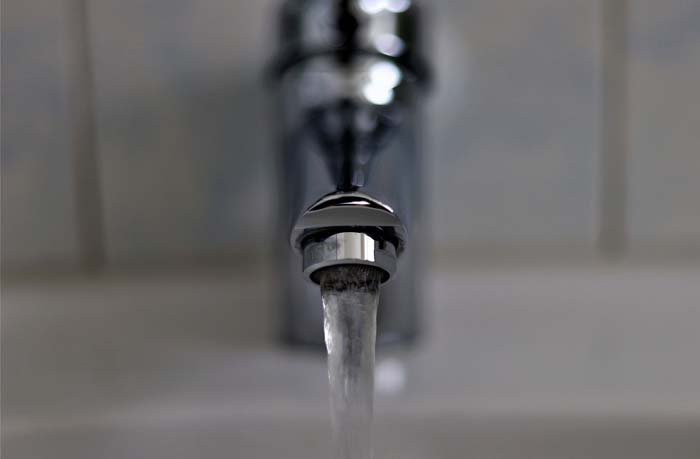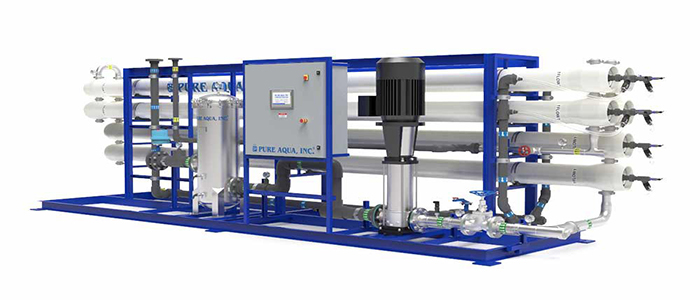
It is important to always be grateful for simple access to clean drinking water. If you want to consume water free of germs and other contaminants, you need a water purifier. You risk harming your health by drinking water of low quality. Installing a water filter is important since many of you may be receiving water that is not safe to drink. After taking care of that, it is just as essential to investigate how often water purifiers and their filters need servicing.
Here are a few tips that will help you maintain your water purifier:
Sanitize the water tank
Aside from changing the filters on a regular basis, you should also clean and sanitize your whole water purifier once a year. To do this, you must dismantle the purifier in order to access the membranes and the numerous connecting pipes. After that, you must wash and disinfect them before reassembling the unit. It also gets rid of any bacterial contamination that may have built up over time and takes care of any potential blockages in the system. In addition to doing this on a regular basis, you should also be aware that if your purifier starts to emit any bad tastes and smells, it’s time to clean it thoroughly.
Yearly maintenance
You should look into getting an annual maintenance contract for your water purifier. A proactive cleaning of the purifier and a couple of planned maintenance inspections are usually part of this. This way, problems won’t fester and can be handled promptly instead of when they become apparent.
Filter replacement on a regular basis
Regardless of the method your water purifier employs, you must replace the filters on a regular basis. Over time, these filters become clogged with various pollutants. The contaminants will have a negative impact on the performance of your water purifier as well as the water’s flow and smell. Over time, the water you drink will become contaminated with contaminants. Changing the filter on a regular schedule is important. Choose a water purifier with a service alarm that notifies you when it’s time to change the filters.
Keep the purifier in a clean area
Like any other device, your water purifier works best in an area with good ventilation. Daily cleaning of the purifier’s exterior, particularly the water distribution taps, is essential. In the end, this keeps your system looking brand new and decreases the likelihood of water contamination.
Never disregard leaks and drips
Your water purifier is vulnerable to damage from leaks and drips; therefore, you should never disregard them. Make an appointment for a professional inspection if you discover any leaking or dripping. Some components may be loose or worn out, leading to a leak or drip. Without delay, a specialist needs to address this. This is because it has the potential to cause several complications.
Do water filtration systems need maintenance?
For optimal performance, you must change water filters every few months. How often you need to change your water filter is directly related to the kind of filter you have and how much water you drink.
The lifespan of a water filter is significantly greater when installed throughout an entire house as opposed to a single fixture. There are a few parts that will eventually need changing. You can avoid water with an unpleasant taste by sticking to the replacement schedule. After replacing pre-sediment filters, soil, sediment, and rust can pollute the water. If they experience more wear and tear, their lifespan can decrease. If you consume water that has these particles, it could have a horrible texture and taste. Doing so puts yourself and your loved ones at risk of exposure to germs that can cause illness.
Life expectancy of a water filtration system?
Most likely, the manufacturer has set a lifespan for the water filter in your system. Reminders to change the filter are also included with high-tech water filtration systems. Remember to keep an eye out for any indications that the filter may need replacement at a later date, even if the manufacturer has given you a certain time frame in which to do so.
Gallons are the standard unit of measurement for a water filter’s lifespan. How long filters last is directly proportional to the water usage or the number of gallons of water that can be passed through the type of filter to produce clean, filtered water. The typical water filter has a 100-gallon capacity and a four- to six-month lifespan. Typically, the lifespan of each filter type varies. This may be the case, depending on the filter type and the water quality. The amount of water that passes through the filter and how often it is used are two major variables that impact its lifespan.
The typical lifespan of a water filter is roughly this long.
- Post filter cartridges: one to two years
- Countertop filters: six months
- Carbon filters: six months to one year
- Faucet water filters: two to three months
- Shower water filters: three months to six months
- Reverse osmosis membranes: two years
- Sediment filters: six months to one year
- Under sink water filter: three to six months
- Refrigerator water filters: three months to six months
How often should a water filtration system be serviced?
The frequency of servicing for these systems is every twelve months or more frequently if the water hardness level is high.
How much does it cost to maintain a water filtration system?
The total cost of water treatment should include not just the initial investment but also any necessary repairs. The annual maintenance expenditures of a water softening system, including the cost of salt and replacing expired filter media, can reach $200 or more, depending on the system.
 What happens if you don’t clean your water filter?
What happens if you don’t clean your water filter?
You might expect a decline in the water’s quality. Once water filters are too clogged, they won’t be able to remove impurities as efficiently, and the water you drink won’t taste the same.
The filtration system will not function properly when you use an old water purifier. As a result, sediment and chlorine could be present in your drinking water. Your tap water could have an off taste or an unpleasant odor. You should also ensure no remaining sludge seeps into your water supply through the filter.
The water pressure in your home is another problem. When filters are “filled,” water passes through less readily. Commonplace chores, such as doing the laundry, can take much longer. The time it takes to get a shower would also lengthen.
In Summary
In addition to the measures above, it is essential to collaborate closely with a company that is well-versed in the correct way to maintain this kind of system. It is crucial to locate a trustworthy dealer for water treatment technology when looking for a replacement or making a new water purifier. Backwash filters, water treatment systems, ionizers, ozone systems, ultraviolet light systems, activated carbon whole house systems, and a plethora of other options are available from Express Drainage Solutions. In addition to assisting with the choice, their specialists advise maintenance.
